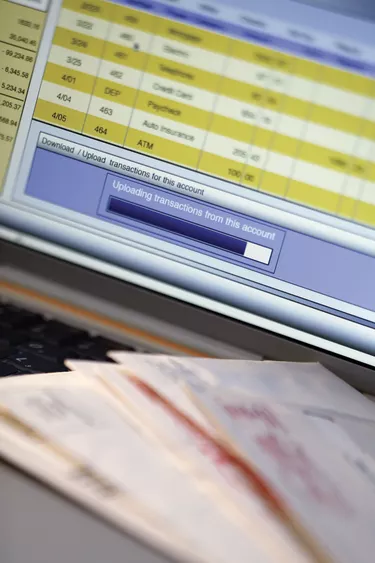
A frozen bank account can result from several issues, but the most common explanation is that you've fallen so far behind on debt payments that the creditor has secured a judgement against you. Another common cause is failing to comply with payments ordered by the court.
A frozen bank account means the bank prevents you from using it. You cannot use a frozen account to write checks, withdraw cash or make transfers. You also can't use electronic bill paying services tied to the frozen account. Even checks you wrote before the account was frozen will not be honored by the bank, and you may incur bank fees for insufficient funds.
Video of the Day
Video of the Day
You can still make deposits to a frozen account, but you won't be able to access those funds unless the money comes from Social Security payments, government pensions, unemployment, child support or alimony.
Creditors
Most frozen bank accounts result from overdue debts. Creditors can range from credit card companies, medical facilities, vendors, and other companies that you owe money to. Each can take action if you fall behind on your bills. In addition, if you owe taxes to the state or federal government or have not kept up with your child support payments, your account risks being frozen. Your account may also be frozen if you owe money in a divorce settlement and get behind on the payments.
Judgment Required
Before you account is frozen, a creditor needs a judgment. First, the creditor files a lawsuit. If the creditor is awarded a judgment in the lawsuit, whether because a judge agrees with its position or because you didn't respond to the filing at all, it can request that you make the payments as scheduled by the judgment, or ask the court to issue an order to your bank to freeze your account and transfer the money to it. The judgment, sometimes referred to as an attachment, is then sent to your bank, and the bank places the freeze on the money in your account. Your account may only be partially frozen if you have two times the amount of the judgment deposited there. Otherwise, the entire account will be frozen.
Bankruptcy
Another reason the bank may freeze your account has to do with bankruptcy proceedings. Right after you file for bankruptcy, the trustee assigned to your case may request that the bank freeze your assets to pay back some of your creditors. A portion of the funds may be left unfrozen to pay child support, alimony and living expenses.
Notification
While notification of a creditor's decision to freeze your bank account is not required, the creditor must let you know that it is filing a lawsuit against you in an attempt to collect the debt. The creditor must also let you know it's been awarded a judgment against you. Even so, you are unlikely to be notified that your account is about to be frozen in advance.